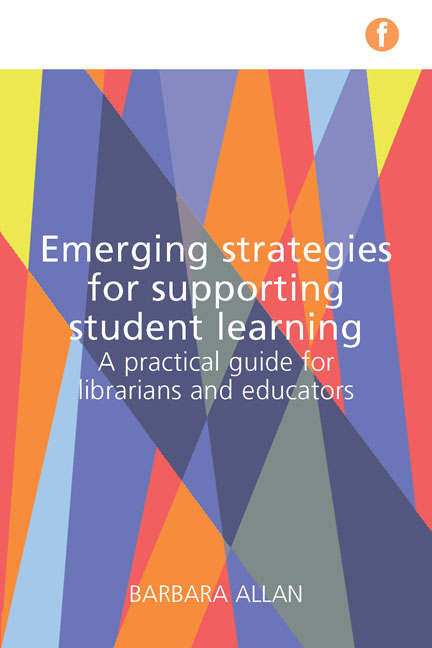Book contents
- Frontmatter
- Contents
- Figures and tables
- Acknowledgements
- 1 Introduction
- 2 Working with students
- 3 Digital literacies
- 4 Employability
- 5 Approaches to learning and teaching
- 6 Learning and teaching activities
- 7 Making it happen
- 8 Designing face-to-face, blended and online courses
- 9 Delivering learning experiences
- 10 Evaluation of learning and teaching activities and courses
- 11 Lifelong professional development
- Index
6 - Learning and teaching activities
Published online by Cambridge University Press: 08 June 2018
- Frontmatter
- Contents
- Figures and tables
- Acknowledgements
- 1 Introduction
- 2 Working with students
- 3 Digital literacies
- 4 Employability
- 5 Approaches to learning and teaching
- 6 Learning and teaching activities
- 7 Making it happen
- 8 Designing face-to-face, blended and online courses
- 9 Delivering learning experiences
- 10 Evaluation of learning and teaching activities and courses
- 11 Lifelong professional development
- Index
Summary
Introduction
Chapter 6 presents a wide range of learning and teaching activities which may be used by library and information workers as part of their face-to-face, blended or online courses or modules. This chapter is concerned with presenting basic ideas, common learning and teaching activities, assessment of learning and reflection on learning. In addition, it considers learning and teaching without courses, i.e. supporting student learning outside of scheduled teaching sessions.
Each learning and teaching course or event is likely to involve various activities and a general principle is to use a number of different types of activities as this will help to make the session interesting and engaging. The design of learning and teaching courses and events is explored in Chapters 7 and 8.
Presenting basic ideas
This section considered different ways of presenting ideas by tutors or students.
Briefing paper
A briefing paper is a short written summary of a topic with visual images. It is a useful tool for presenting basic ideas to students or as a means of asking students to research and report on a subject. It is likely to cover key ideas, present new vocabulary, and provide a guide to additional resources. Briefing papers are often used by tutors as a means of preparing students for their face-to-face activities. Students may be asked to prepare a briefing paper in advance of a face-to-face session or as part of an online activity.
Successful briefing papers are likely to:
• be short – no longer than four sides of A4
• be clearly written in accessible language
• define new vocabulary in a student-friendly style
• use images and diagrams
• include additional references.
Demonstrations
Demonstrations are a common method of introducing students to different resources. Their advantage is that they are a useful means of giving an overview, e.g. of a particular online resource. However, short demonstrations lasting less than five minutes are likely to be much more successful than longer ones as it can be very challenging to maintain students’ interest in a demonstration and deliver one that meets the needs of the whole group.
- Type
- Chapter
- Information
- Emerging Strategies for Supporting Student LearningA Practical Guide for Librarians and Educators, pp. 75 - 100Publisher: FacetPrint publication year: 2016



